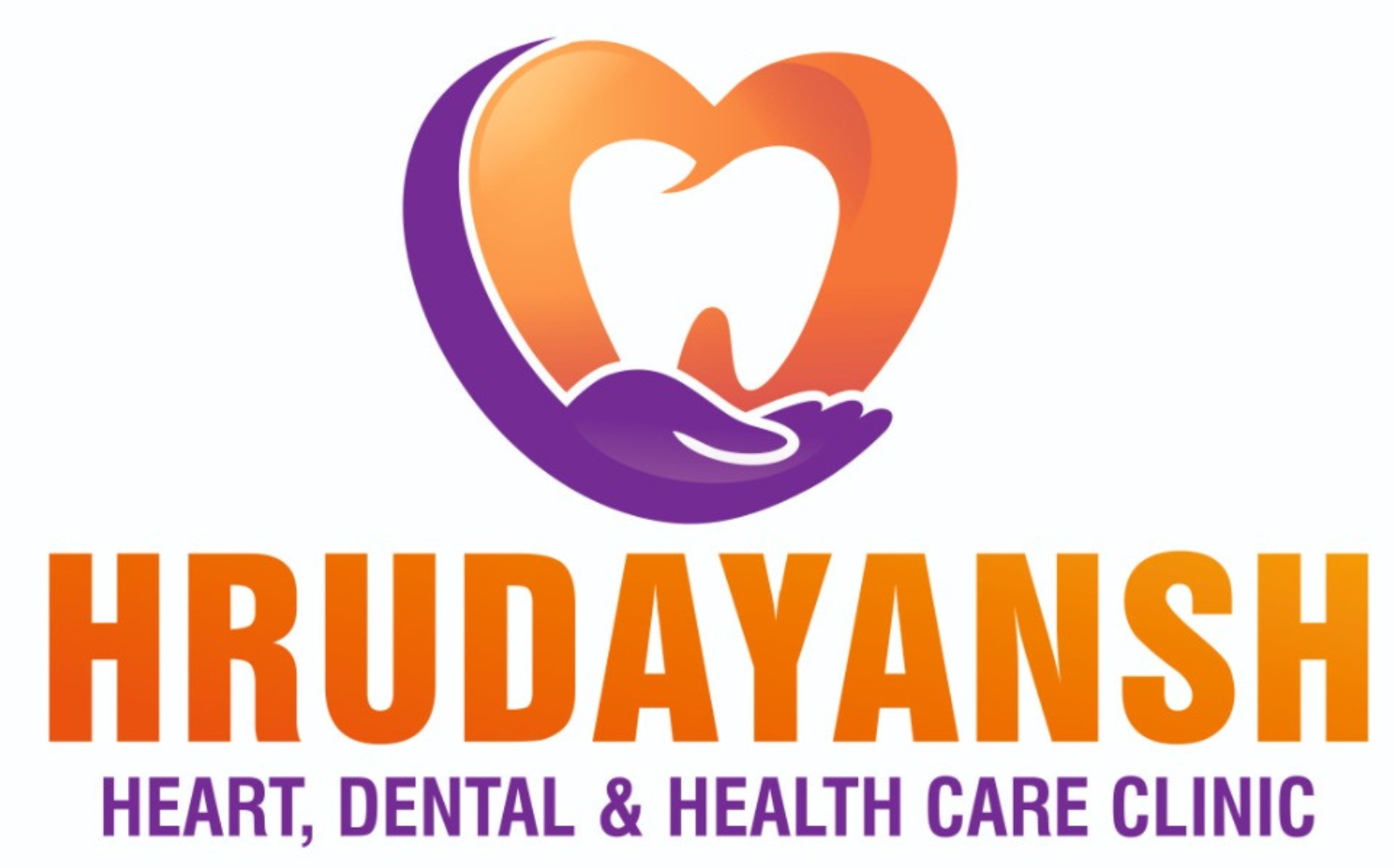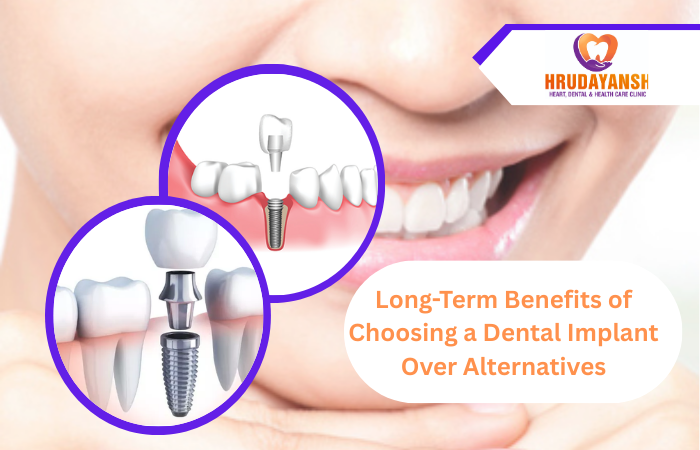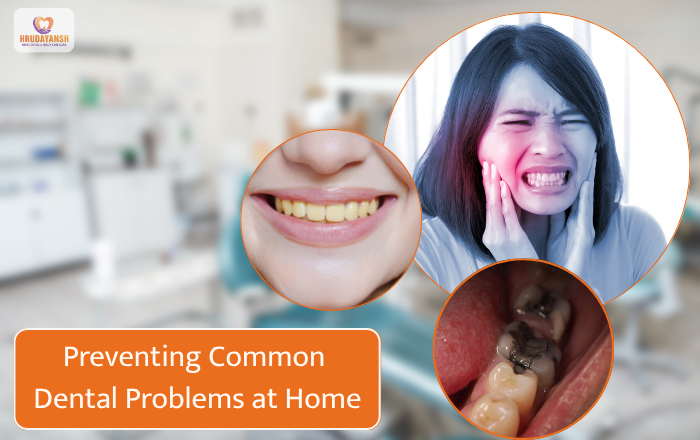Losing a tooth can affect more than just your smile — it impacts your confidence, chewing ability, speech, and even your overall oral health. Fortunately, modern dentistry offers several options to replace missing teeth, including bridges, dentures, and dental implants.
Among these, dental implants have gained recognition as the most durable, natural-feeling, and long-lasting solution. At Hrudayansh Clinic in Baner, under the expert care of Dr. Mrunal Nalawade, patients are choosing dental implants for their unmatched benefits compared to traditional alternatives.
This blog explores the long-term benefits of dental implants and why they are often the preferred choice for restoring your smile and oral function.
What are Dental Implants?
A dental implant is a titanium screw surgically placed into the jawbone, acting as an artificial tooth root. Over time, it fuses with the bone through a process called osseointegration, providing a sturdy foundation for a crown, bridge, or denture.
Unlike dentures or bridges, implants do not rely on adjacent teeth for support, preserving the health and structure of your natural teeth.
Why Consider Dental Implants Over Alternatives?
- Longevity and Durability
Dental implants are designed to last a lifetime with proper care, whereas bridges and dentures typically need replacement every 5–15 years. This longevity makes implants a cost-effective choice in the long run.
- Preservation of Jawbone Health
When a tooth is lost, the jawbone begins to deteriorate due to lack of stimulation. Dental implants mimic natural tooth roots and stimulate the bone, preventing bone loss and maintaining facial structure.
- Natural Look and Feel
Implants are custom-made to match your natural teeth in color, shape, and size. They feel more comfortable and stable than removable dentures, restoring your ability to speak and chew with confidence.
- No Impact on Adjacent Teeth
Traditional bridges require grinding down healthy neighboring teeth to anchor the bridge. Implants stand independently, preserving the integrity of your remaining teeth.
- Improved Oral Hygiene
Dental implants are easy to clean and maintain like natural teeth, reducing the risk of cavities and gum disease that can affect dentures or bridges.
Long-Term Health Benefits
- Prevention of Bone Loss: As mentioned, implants help maintain jawbone density, which is vital for facial aesthetics and dental health.
- Better Digestion: Implants restore proper chewing ability, aiding in better digestion and nutrient absorption.
- Speech Improvement: Unlike dentures, implants do not slip, enabling clearer and more confident speech.
- Reduced Risk of Gum Disease: Implants do not irritate gums the way ill-fitting dentures can, lowering inflammation risks.
Patient Experience at Hrudayansh Clinic, Baner
At Hrudayansh Clinic, we prioritize patient comfort and tailored treatment plans. Under the skilled hands of Dr. Mrunal Nalawade, every dental implant procedure is carried out with precision and care, using the latest technology to ensure optimal outcomes.
Patients often share how implants have transformed their daily lives—from enjoying favorite foods again to regaining their confidence in social settings.
The Lasting Solution for a Healthy, Confident Smile
Choosing a dental implant over other tooth replacement options offers undeniable long-term benefits—from improved oral health and aesthetics to lasting durability and comfort.
If you’re considering restoring your smile, consult Dr. Mrunal Nalawade at Hrudayansh Clinic ,Baner, to learn how dental implants in Baner can be the perfect solution for you.
Frequently Asked Questions (FAQs)
- How long does a dental implant procedure take?
The process typically takes several months, including implant placement and healing time before the crown is attached. - Are dental implants painful?
Most patients experience minimal discomfort, managed easily with local anesthesia and post-operative care. - Can anyone get dental implants?
Most healthy adults are candidates, but bone density and overall health are factors. A thorough dental evaluation is necessary. - How do I care for dental implants?
Regular brushing, flossing, and dental check-ups keep implants healthy, just like natural teeth. - Are dental implants expensive?
While the initial cost is higher than other options, implants’ durability often makes them more cost-effective over time.


